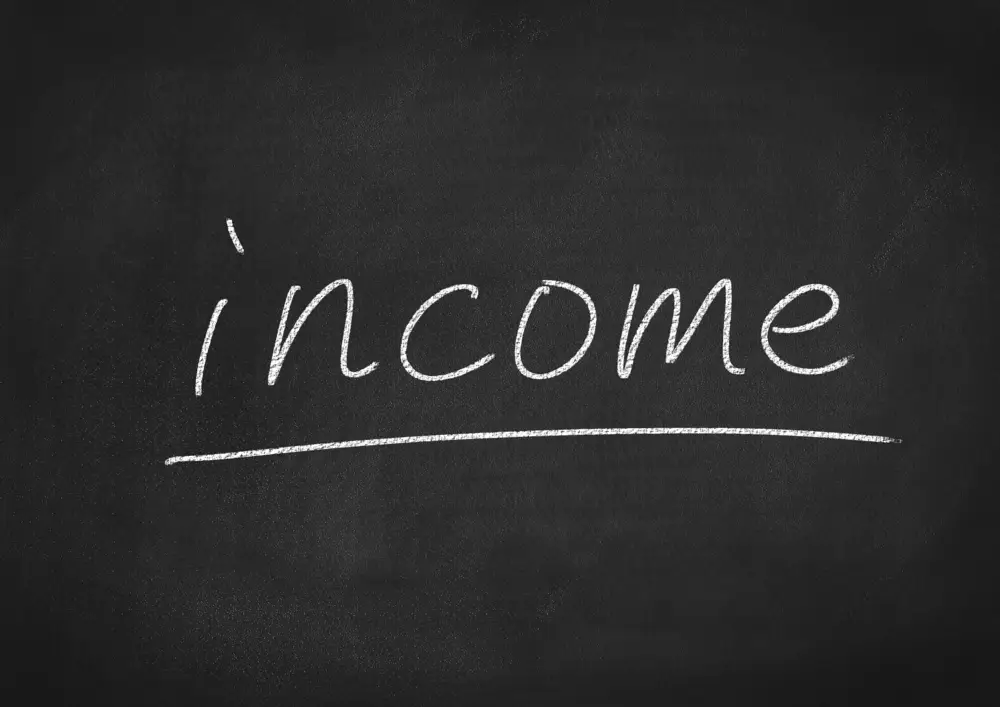For what reason should your budget include net income?
An vital part of financial planning, budgeting helps people control their income, save for the future, and stay out of debt. Without a planned budget, one may easily overspend, miss targets for savings, or ignore required costs. Knowing how to figure and apply your net income is one of the most important components of building a reasonable and sustainable budget. Often referred to as take-home pay, net income is the amount left over from your gross income after deductions include taxes, insurance premiums, and retirement contributions. It shows your actual income for debt pay-back, savings, and living costs. A budget that works requires its foundation on your net income rather than your total income. This post will go over why financial success depends on using net income for your budget.
What is Net Income?
Comprehending Net Income
- Definition of Net Income: After all required deductions from their compensation, net income—that is, the amount of money each person takes home—is Federal and state taxes, Social Security contributions, health premiums, retirement savings, and other employee perks can all be deducted from these totals. After these responsibilities are deducted, net income is the most accurate indicator of what you really have free to spend, invest, or save.
- Net Income: Unlike Gross Income: Gross income, then, is your whole income before any deductions are taken. Although companies and financial institutions mostly rely on gross income as a benchmark, it does not really represent your actual financial status since it ignores the several deductions made out of your salary. For instance, if your gross income is $5,000 a month but after taxes, insurance, and retirement contributions your net income is just $3,500. It is therefore vital to create your budget using the $3,500. Using gross income can cause you to overestimate your financial capabilities, which would lead to mismanagement of finances and debt and financial hardship.

Net Income’s components—taxes, deductions, benefits—are:
Your gross income less a number of elements yields your net income. The most often occurring deductions consist in: Federal and State Taxes: Your company automatically withholds taxes; their variation will depend on your tax bracket and filing status. A fraction of your salary goes toward financing Social Security and Medicare, both of which the government mandates. Health insurance, pension plans or 401(k), and other employee benefits are withdrawn from your pay-roll. Depending on your circumstances, you can be entitled to more deductions such life insurance, flexible spending accounts, or union dues. Including these deductions helps you build a more accurate budget and presents a reasonable view of your financial resources.
Net Income’s Part in Budgeting
Why a Realistic Budget Needs Net Income
In terms of budgeting, the secret to success is matching your expenditure to your real income. Unlike gross income, which can be deceptive, net income represents the money you can really use, hence it forms the basis of a reasonable budget. Here’s the reason your budget should center net income:
Making a Take-Home Pay Based Budget
Using net income helps you to make sure your budget is grounded in your real financial resources. Building a budget around the money you take home after deductions is crucial since this will define your daily living expenditures. A false sense of financial stability generated by gross income can cause you to allocate more money than you really have for things like debt repayment, savings, and discretionary spending.
Preventing Excessive Financial Capacity
Many people budget using their gross income and mistakenly believe they have more money than they really do. Undervaluation of monthly expenses, overcommitting to long-term financial goals, and overspending can all follow from this. Using net income guarantees that you only budget for what you really have on hand.
Creating Reachable Financial Objectives
Starting your budget on net income helps you to create reasonable and attainable financial goals. Whether your objectives are to pay off debt, save for retirement, or create an emergency fund, using your net income helps guarantee that your goals reflect your present financial situation. This will help you to better understand the reasonable amount you may commit to certain areas.

Using net income in your budget has several benefits.
Advantages of net income budgeting
- Correct allocation of expenses: Using net income in budgeting lets one more precisely allocate expenses. Based on the real money you have, you can classify your expenses—rent, utilities, groceries, entertainment, etc. This helps you to clearly see where your money is going and keeps you from overshooting your budget. Managing your money successfully and minimizing financial stress depend on accurate spending allocation.
- Avoiding Debt and Financial Stress: Using net income as your basis for budgeting helps you stay out of debt beyond what you can manage. Knowing your available income after taxes and deductions helps you to decide how best to spend your money and handle your debt. Making sure you don’t overspend lowers your chance of becoming behind on crucial financial responsibilities or developing credit card debt.
- Long-Term Monetary Situation: Budgeting from net income encourages discipline and reasonable financial expectations, therefore promoting long-term financial health. Regularly evaluating your net income, adjusting for changes in income or expenses, and following your budget can help you to reach financial stability and steer clear of typical mistakes include too much borrowing or overspending.
How might you use net income to your budget?
Methodical Guide on Budgeting Using Net Income
- Get Your Monthly Net Income Calculated Here: Finding your exact take-home pay is the first phase in budgeting using net income. To figure your actual income, subtract all deductions from your gross income. Calculate the average net income over the past few months if your income varies—that instance, whether you work freelantically or on commissions.
- List ALL Fixed and Variable Expenses: Then compile your fixed and variable expenses. Rent, utilities, and auto payments are among the fixed expenses—those that are consistent every month. Variable expenses including dining out, entertainment, and groceries could change month to month. To build a complete budget, be sure to consider both kinds of spending.
- Sort Emergency Funds and Savings: Savings should take front stage in your budget. Set away some of your net income for long-term and short-term needs include an emergency fund, retirement account contribution, or significant purchase savings. Usually, one should set aside at least twenty percent of their salary for savings.
- Match Income to Expenses: At last, depending on your net income, change your expenditure categories as needed. Should your income vary, you could have to cut back on some expenses to make sure you’re within your means. Reviewing and changing your budget often guarantees that you will be able to keep reaching your financial targets even in times of upheaval.

Typical Errors People Make Using Net Income in Their Budget
Neglecting Variable Income Sources
Budgeting based on the greatest income month can easily trap people with unpredictable revenue—that of freelancers or commission-based employment. When income falls, this can cause overspending. Budgeting depending on typical monthly income and adjusting for changes helps one prevent this.
Ignoring Outstanding Expenses
When budgeting using net income, irregular expenses—such as annual insurance payments or holiday gifts—can be readily ignored. By dividing their annual cost by 12 and seeing them as a monthly expense, incorporate irregular expenses in your budget to help you prevent this.
Not Frequent Budget Updates
Whether through a raise, a new job, or an unanticipated cost, financial situations can turn around rapidly. Regular budget updates help you to accurately represent these changes. Without regular updates, you could find yourself underfunding or overpaying on crucial areas like debt payback or savings.
In conclusion
In essence, good financial management depends on your budget starting point being net income. Budgeting from your take-home salary can help you to develop a reasonable and attainable financial plan fit for your genuine financial capability. This strategy lowers financial stress, helps to prevent debt, and advances long-term financial wellness. Reviewing your budget often and modifying it depending on changes in your income or expenses will help you to keep on target and meet your financial objectives. Thus, use your net income to create a budget today and equip yourself for a consistent and safe financial future.


